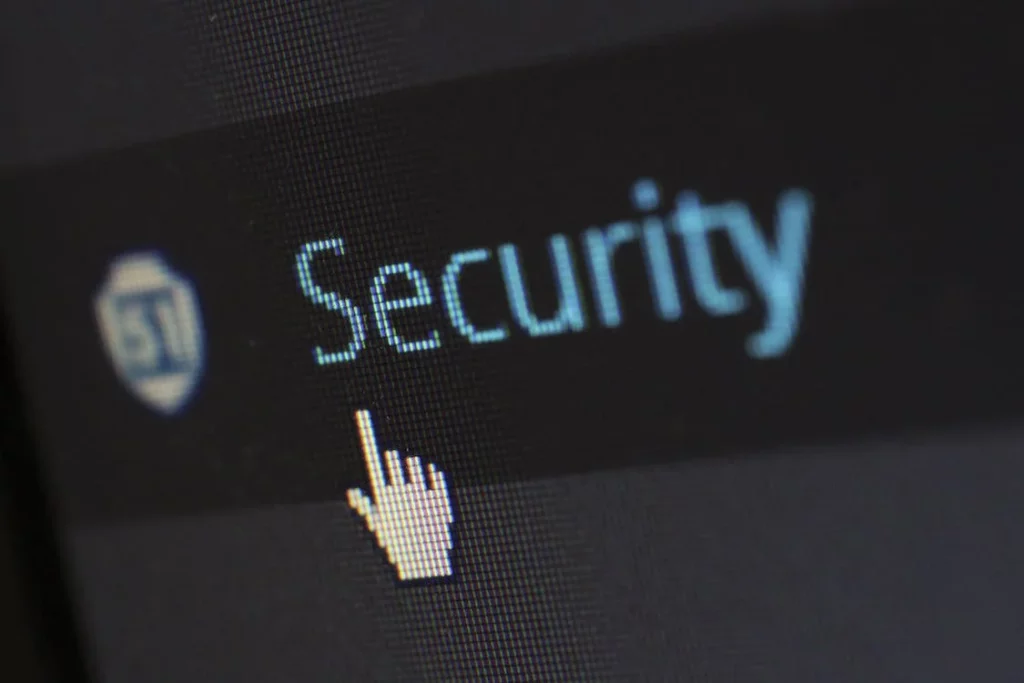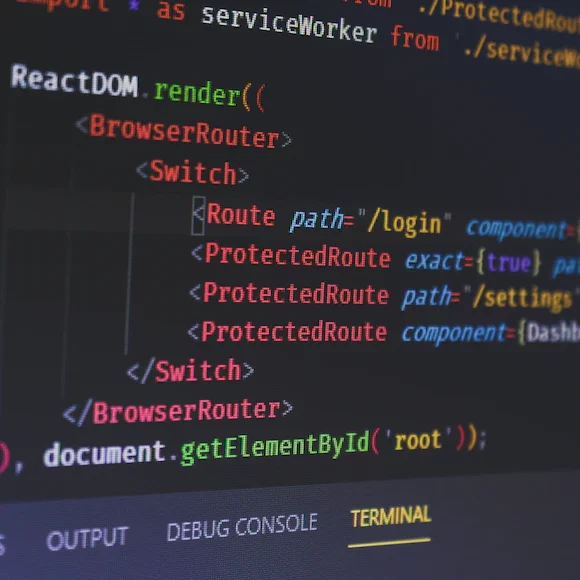“It is crucial in today's world to be aware of how to use the internet safely”

It can be intimidating to navigate the internet, particularly for young people who may not have much online experience. By following some simple rules and guidelines, you can ensure that these experiences remain positive for young people. This article will explore tips on making good decisions when navigating the internet and staying safe online.
The Need for Antivirus Software in Online Security
Internet filters, monitoring tools, and antivirus software can help users to stay safe online by being protected against threats.
- Internet filters are an effective way to limit internet access by blocking unwanted websites and content.
- Monitoring tools can be used to monitor internet usage and quickly detect any suspicious activity.
- Antivirus software can help internet users protect their devices from malicious programs, viruses, and other internet threats.
These tools can also assist in defending young internet users against online predators, cyberbullying, and other harmful actions. Here are some of the top antivirus programs to help safeguard yourself as well as your computer:
McAfee
It is a good pick for multiple devices because its subscriptions provide security for every device in a home at an affordable price. It comes with features like safe web browsing, identity theft protection, a password manager, encrypted storage and full network protection.
Norton
To counter cybersecurity risks, Norton is renowned for using machine learning, which makes use of data to enhance technological performance. It provides a wide variety of antivirus options and a sizable amount of cloud storage. A firewall, VPN, password manager, identity theft protection, and robust parental controls are available extras.
Bitdefender
It provides a range of security-first capabilities, including ransomware prevention, monitoring of online purchases and web-based transactions as well as protection against fraud and phishing, all of which are controlled through an intuitive dashboard.
Webroot
This antivirus program offers customers the essential security they need while browsing the internet as well as parental controls because some of the features can be customized to safeguard children.
Avast
Even the free version of this antivirus software is quite effective at detecting and eliminating malware such as viruses and ransomware. Additionally, your Wi-Fi network is protected from being hacked and from other dangers with its built-in security. Paid versions come with further features including IP address blocking, bogus website identification, phishing protection, and security for browser-stored passwords.
Stick to Safer Websites and Avoid Age-Restricted Content

By limiting young people to sites that are appropriate for their age, you can protect them from inappropriate material and potential dangers on the internet. Age restrictions exist to ensure that kids do not have access to the content they may not be prepared for or may find upsetting or distressing.
In general, it is advisable for young internet users to avoid exposure to potentially harmful content such as violence, drug usage, graphic imagery, and explicit language. Avoiding age-restricted websites also prevents kids from inadvertently accessing adult-themed conversations which could lead them astray or mislead them in some way.
To make parents’ jobs easier, there are numerous parental control programs that can help protect your children when they are online. The most recent versions of Mac OS and Windows already have parental control software, but you may also buy standalone versions that have more capabilities and flexibility. Software like Norton Family, Net Nanny, and Qustodio should do the trick.
Take Extra Caution When Using Passwords and Sharing Information Online

To protect your personal information from unscrupulous hackers in today’s digital age, secure passwords are crucial for all of yours as well as your kids’ online accounts.
A weak password may be easy to remember but it also makes it easier for someone else to guess and gain access to your accounts. This means that anyone who obtains this password will have full access to all the sensitive information stored on these accounts, such as credit card details, banking information, or even private messages.
Creating a strong password is not difficult. A secure password should have at least 8 characters and be made up of a mix of capital and lowercase letters, numbers, and symbols that are challenging for other people to decipher. It is also necessary to avoid using words or phrases related to yourself in your passwords such as birth dates, names of family members or pets, or favourite sports teams. You can change your passwords every few months to ensure they remain secure.
A second line of defense against malevolent hackers seeking to access your information is to enable two-factor authentication on all of your online accounts in addition to using strong passwords. This requires you to enter both a password and a separate code sent to your phone or email address, making it much harder for someone to access your accounts.
Additionally, young people should be mindful of the information they share online. Remind your kids to share any sensitive details that could potentially be used for identity theft. Sharing too much personal information on social media sites or other public forums such as message boards can put your kids’ identity at risk and leave your family vulnerable to malicious hackers or scammers.
Although caution when sharing too much personal information online may seem like common sense advice in today’s digital environment, it is crucial for users of all ages and levels of experience to remember this to protect themselves from online attacks.
Be Courteous and Avoid Embarrassing Others on the Internet
The internet may be a fantastic and effective tool for bringing people together, but netizens should always be treated with respect by all users. Talk to your kids about online cruelty and bullying, and discuss how it could have detrimental effects on both the victim and the cyberbully.
Some talking points on cyberbullying could be about:
- It is unethical, immoral, and wrong.
- It significantly impacts mental health, potentially leading to depression, anxiety, and even suicide in extreme cases.
- It could also lead to cyberstalking and other forms of online harassment which can also have severe consequences.
- Several nations around the world have made cyberbullying a crime.

Inform an Adult If You Notice Strange or Negative Online Behavior
Internet safety is no joke, and young people must stay vigilant and aware of any strange or bad behavior online. Kids should be encouraged to tell their parents, guardians, or another trusted adult right away if they notice something that makes them feel uneasy or suspicious. Even if it turns out to be nothing, it is always preferable to be safe rather than sorry because online predators are notorious for preying on gullible victims.
What are some examples of suspicious behaviour online that your child can watch out for?
- Receiving a message from someone they do not know asking for personal information such as their address or phone number.
- If a stranger messages them multiple times and makes overly friendly comments that make them feel uncomfortable.
- Receiving threatening messages.

What are some examples of unethical behaviour that your child should refrain from participating in?
- Publishing incorrect or misleading information.
- Stealing other people’s ideas or work without giving them credit.
- Hacking into other people’s accounts.
- Impersonating someone else online.

Always remember that there are internet predators as well. They are notorious for impersonating other people online, and they frequently get in touch with young people to win their trust before requesting them to meet up in person or perform inappropriate behavior. Teaching your kids about internet safety could help them identify potential risks early.
Pick Your Online Friends Wisely

It is crucial for kids to be selective about their online buddies and exercise additional caution while building interactions online.
The internet can be a double-edged sword, allowing us to connect easily with people all around the world, but it also exposes us to potential threats from malicious individuals. When it comes to choosing who to befriend online, it is best to teach kids to be cautious and err on the side of caution.
When trying to make new friends online, kids usually try looking for mutual interests or similar life experiences that they share in common with them. They should ask questions and get to know them better before they decide whether they are someone they would like as an online friend.
Parents should help to make sure that their profile is authentic and that there is evidence of them being who they say they are, such as pictures or other posts that prove their identity.
If your kids start talking with someone new online, remind them to avoid sharing personal information until after they have established a solid relationship, preferably in real life.
Kids should keep in mind that even if someone seems like an ideal friend online, this does not necessarily mean that they are trustworthy in real life.
The online world is one filled with both excitement and temptation. Learning internet safety early on will make a huge difference in the way kids use, learn from, and enjoy the many online spaces which take up so much of our lives. By following some of this advice on internet safety, we can ensure that kids are not at risk of becoming victims of cybercrime or other malicious activities taking place across the web today.

Leave a Reply